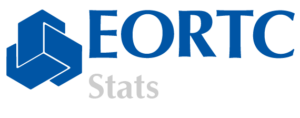Committees of the Board
Several Committees oversee EORTC’s strategy and independence as well as the relevance and scientific value of all research efforts, ensuring scientific work meets highest quality standards. Each EORTC Committee Chair is selected to serve a three-year term which may be renewed upon recommendation by the EORTC Board.
The Audit and Financial Committee (AC/FC)
The Audit and Financial Committee’s responsibilities include assisting the Board of the EORTC and the EORTC Cancer Research Fund, respectively, in their financial management. The AC/FC is an advisory voice for the Organisation’s long-term financial management principles and budgeting and financial reporting processes. The Committee ensures strong recommendations to the Board on financial matters.
The AC/FC hires, dismisses, and supervises auditors.
The Nominating Committee (NC)
The Nominating Committee acts as an advisory Committee to the Board regarding appointments of the President of the Board, the CEO, and the CFO. It also safeguards that the Organisation has formal, rigorous, and transparent procedures to support these decisions. The NC is chaired by the President in charge and is composed of the three Past Presidents.
The Executive Committee (ExCo)
The Executive Committee may be conducted upon need to expedite critical decisions. It expedites matters which require actions in between plenary Board meetings. It is not predefined, and participants are selected among the Board Members depending on the nature of the issues to be discussed.
The Scientific Audit Committee (SAC)
The Scientific Audit Committee gives independent advice to the EORTC Board and to the Scientific Chairs Council on the activities, scientific output, overall priorities and strategies of the EORTC. The SAC evaluates the effectiveness of research programmes and makes suggestions to strengthen the EORTC’s overall functioning. The SAC also serves as an advisory body to the EORTC Board to appoint Group leadership. The Committee’s Members represent a cross-section of international opinion leaders and experts, half of whom have no other EORTC involvement.
SAC Members
E. Eisenhauer – Kingston, CA
Chair
Queen’s University
L. Kachnic – New-York, US
Secretary
R. Bristow – Manchester, GB
Member
University Professor of Cancer Studies, Director of MCRC
L. Ellis – Houston, US
Member
MD Anderson Cancer Center
M. Trneny – Prague, CZ
Member
Charles University Hospital
D. Lacombe – Brussels, BE
Member
EORTC Headquarters
J. Radford – Manchester, GB
Member
The Christie NHS Foundation Trust
R. Plummer – Newcastle, GB
Member
Newcastle Hospitals NHS Trust
E. Rutgers – Amsterdam, NL
Member
The Netherlands Cancer Institute
Antoni van Leeuwenhoekziekenhuis
M. Stockler – Sydney, AU
Member
NHMRC Clinical Trials Centre Medicine
P. Fumoleau – Paris, FR
Member
Institut Curie
The Fundraising Committee
The Fundraising Committee is in charge of establishing a fundraising strategy to serve the mission and the scientific strategy of the Organisation. It is also responsible for coordinating the efforts to implement the fundraising strategy. The latter includes, but is not limited to, direct solicitation of donors, identification and coordination of fundraising opportunities such as campaign development and exploiting the fundraising expertise present in the Organisation. The Fundraising Committee works in close collaboration with the Organisation’s fundraising officer and the CEO to avoid duplication of work and ensure efficiency.
The Scientific Councils
The Scientific Chairs Council (SCC)
The Scientific Chairs Council drives the scientific agenda of the Organisation and ensures an adequate scientific projects portfolio balance in order to fulfil its mission. It acts as a cross-Group exchange facilitator and ensures common functioning rules across Groups (management, appropriate distribution for studies, place of Early Career Investigators, …). It is the link between the EORTC network and other EORTC governance bodies. It establishes the principles of the EORTC’s scientific strategy and the prioritisation criteria which go with it. It is composed of the Chairs of the Groups and Task Forces. The details of its functioning are regulated by a Charter.
SCC Chairs
B. Besse – Villejuif, FR
Chair
Gustave Roussy Cancer Campus
M. Weller – Zurich, CH
Vice Chair
Universitätsspital Zürich
The Radiation Oncology Science Council (ROSC)
The Radiation Oncology Science Council was created as a think tank to stimulate exchanges among the EORTC Disease-Oriented Groups network and to identify new areas of research in radiation therapy. The ROSC benefits of the contribution of members of the European SocieTy for Radiotherapy and Oncology (ESTRO), ensuring the link with the larger radiation oncology community.
It actively promotes radiation therapy both within the EORTC and beyond.
It acts as a reference for radiotherapy (RT) for the EORTC, including for the Disease-Oriented Groups and the EORTC Board, and the radiation therapy quality assurance community.
It will identify and define radiation oncology research questions and support ongoing EORTC activity in the field of radiation therapy.
It will represent the EORTC when called upon to encourage the development and implementation of RT initiatives both nationally and internationally.
ROSC Members
P. Ost – Antwerp, BE
Chair
GZA Ziekenhuizen
Y. Lievens – Gent, BE
Member
Universitair Ziekenhuis Gent
M. Guckenberger – Zurich, CH
Member
UniversitaetsSpital Zurich
S. Lukacova – Aarhus , DK
Member
Aarhus University Hospital
C. Faivre-Finn – Manchester, GB
Member
The Christie NHS Foundation Trust
A. Levy – Villejuif, FR
Member
Gustave Roussy
E. Orlandi – Pavia, IT
Member
entro Nazionale di Adroterapia Oncoloica par il trattamento dei tumori
E. Ozsahin – Lausanne, CH
Member
Centre Hospitalier Universitaire Vaudois – Lausanne
M. Gronlie Guren – Oslo, NO
Member
Oslo University Hospital – Ullevaal Hospital
O. Kaidar-Person – Ramat Gan, ISR
Member
Sheba Tel HaShomer
I. Meattini – Firenze, IT
Member
Azienda Ospedaliero-Universitaria Careggi
R. Haas – Amsterdam, NL
Member
The Netherlands Cancer Institute-Antoni Van Leeuwenhoekziekenhuis
F. Herrera – Lausanne, CH
Member
Centre Hospitalier Universitaire Vaudois
P. Meijnders – Antwerp, BE
Member
Iridium Cancer Network Antwerp/GZA
R. Cowan – Manchester, GB
Member
The Christie NHS Foundation Trust
G. Minniti – Roma, IT
Member
Azienda ospedaliero Univ Policlinico Umberto I
L. Wyrwicz – Warsaw, PL
Member
MSC- National Research Institute
A. Lancia– Pavia, IT
Member
Fondazione IRCCS – Policlinico San Matteo
B. Seddon– London, UK
Member
University College Hospital
J. Verhoeff – Utrecht, NL
Member
UMC-Academisch Ziekenhuis Utrecht
G. Ingrosso – Perugia, IT
Member
University of Perugia and Perugia General Hospital
N. Reynaert – Brussels, BE
Member
Institut Jules Bordet-Hopital Universitaire ULB
C. Hurkmans – Eindhoven, NL
Member
Catharina Ziekenhuis
M. Walczak – Kielce, PL
Member
N. Andratschke – Zurich, CH
Member
UniversitaetsSpital Zurich
B. Fournier – Brussels, BE
Member
EORTC Headquarters
E. Clementel – Brussels, BE
Member
EORTC Headquarters
D. Correia – Aarau, CH
Member
Kantonsspital Aarau
The Chief Executive Officer (CEO)
The Chief Executive Officer operationalises the overarching strategy as defined by the Board and the appropriate deployment of the Organisation in the global landscape and represents the whole EORTC Organisation at the Board as ex-officio non-voting Member. The CEO provides support to the functioning of all Board-related Committees, as well as for the PRC/TRAC and the IDMC. The CEO’s full roles and responsibilities are also governed by a Charter.
Operational Committees
The Operational Committees ensure the scientific and methodological validity of EORTC activities. They operate under independent processes. The Protocol Review Committee (PRC) is the central organ giving clearance for the new prospective clinical research programs. The PRC evaluates the projects in light of the EORTC scientific strategy and its prioritisation criteria as defined by the Scientific Chairs Council and approved by the Board.
Protocol Review Committee (PRC) and Translational Research Review Committee (TRAC)
The Protocol Review Committee is an independent standing Committee that will review a selection of proposed studies based on the submitted protocol synopsis, and assess their scientific value as defined in the EORTC project portfolio management process. The PRC comprises international experts in all disciplines of oncology.
PRC Members
R. Schilsky – Chicago, US
Chair
University of Chicago
L. Siu – Toronto, CA
Vice Chair
University Health Network – Oci / Princess Margaret Hospital
F. Hodi – Boston, US
Member
Dana-Farber Cancer Institute & Harvard Medical School
C. Le Tourneau – Paris, FR
Member
Institut Curie- Hopital de Paris
V. Stearns– New York, US
Member
Weill Cornell Medicine
A. Sobrero – Genova, IT
Member
IRCCS Ospedale San Martino
M. Verheij – Nijmegen, NL
Member
Radboud University Medical Center Nijmegen
M. Tempero – San Francisco, US
Member
UCSF Helen Diller Family Comprehensive Cancer Center
M. C. Garassino – Chicago, US
Member
Univ. of Chicago Duchossois Center Advanced Medicine
M. Carducci – Washington, US
Member
Sibley Memorial Hospital
S. Chang – San Francisco, US
Member
University of California
D. Hayes – Ann Arbor, US
Member
University of Michigan – Rogel Cancer Center
J. Ringash – Toronto, CA
Member
University Health Network – Oci / Princess Margaret Hospital
J. Verweij– Rotterdam, NL
Member
Erasmus University Medical Center
M. Goenen – New York, US
Member
Memorial Sloan Kettering Cancer Center
The Translational Research Advisory Committee ensures the scientific relevance of the translational research in incoming study proposals. It is therefore supportive of the PRC to achieve its evaluations. The TRAC also reviews research projects that are conducted on existing data and human biological material collections.
TRAC Members
D. Hayes – Michigan, US
Chair
University of Michigan Comprehensive Cancer Center
S. Tejpar – Leuven, BE
Past Chair
U.Z. Leuven – Campus Gasthuisberg
R. Herbst – New Haven, US
Member
Yale Cancer Center
E. Scott Kopetz – Texas, US
Member
MD Anderson
T. Lively – Maryland, US
Member
National Cancer Institut
K. Margolin – Seattle, US
Member
Fred Hutchison Seattle Cancer Care Alliance
S. Michiels – Villejuif, FR
Member
Gustave Roussy
F. Penault Lorca – Clermont-Ferrand, FR
Member
Centre Jean Perrin
P. Schöffski – Leuven, BE
Member
U.Z. Leuven – Campus Gasthuisberg
D. Solit – New-York, US
Member
Memorial Sloan-Kettering Cancer Ctr
Independent Data Monitoring Committee (IDMC)
The Independent Data Monitoring Committee conducts interim reviews of EORTC studies and intergroup studies where the EORTC is the coordinating Group (including studies conducted in partnership with the pharmaceutical industry). EORTC values patient perspective and since 2021, patient representatives are members of the IDMC.
The IDMC makes recommendations on whether or not to pursue or adapt a clinical trial based on scientific, ethical, statistical or safety considerations.
IDMC Members
E. Calvo – Madrid, ES
Chair
START Madrid
G. Griffiths – Southampton, GB
Member
Southampton Clinical Trials Unit, University of Southampton
V. Grünwald – Essen, DE
Member
University Hospital Essen
E. Hall – London, UK
Member
The Institute of Cancer Research (ICR)
J. Lopez – London, UK
Member
Royal Marsden
S. Marsoni – Milan, IT
Member
IFOM
M. Mason – Cardiff, UK
Member
Cardiff University
C. Massard – Rennes, FR
Member
Unicancer
H. van Tinteren – Utrecht, NL
Member
Princess Maxima Center
D. Zips – Berlin, DE
Member
Charité Berlin
The permanent IDMC for EORTC studies functions according to a Policy.
All communication with the IDMC should be addressed in writing to IDMCsec@eortc.org.
Groups and Task Forces
The EORTC Network is composed of all Groups and Task Forces. They conduct translational research and/or clinical trials on all types of cancers using a multidisciplinary approach, working according to compatible Standards of Conduct and in compliance with the Organisation’s statutes. The leadership of the different Groups and Task Forces is voted by their respective members, who are Active EORTC Members.



